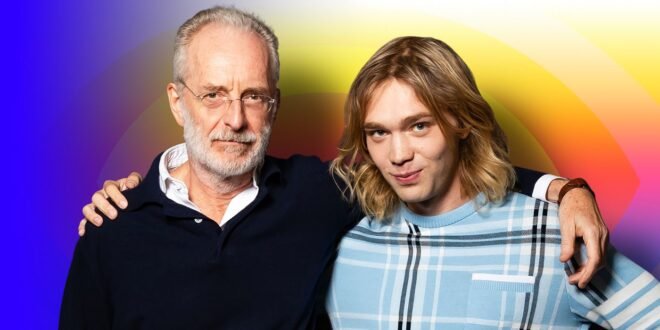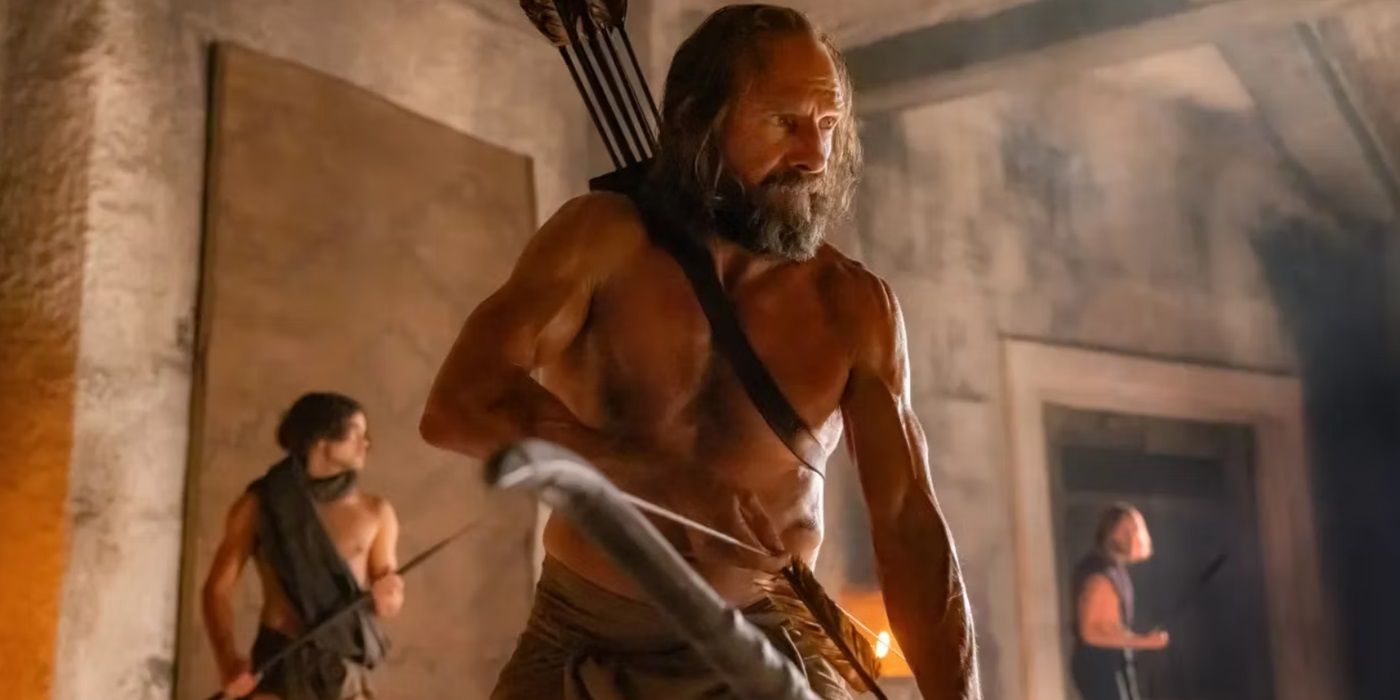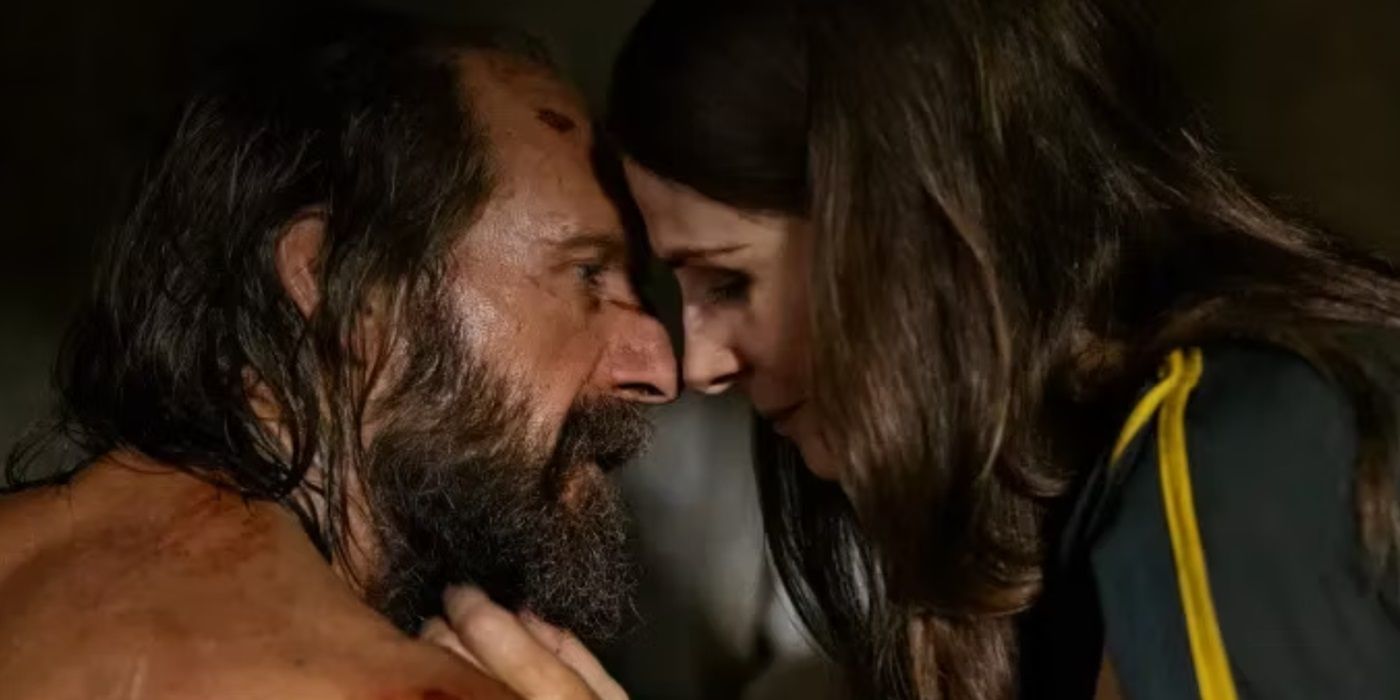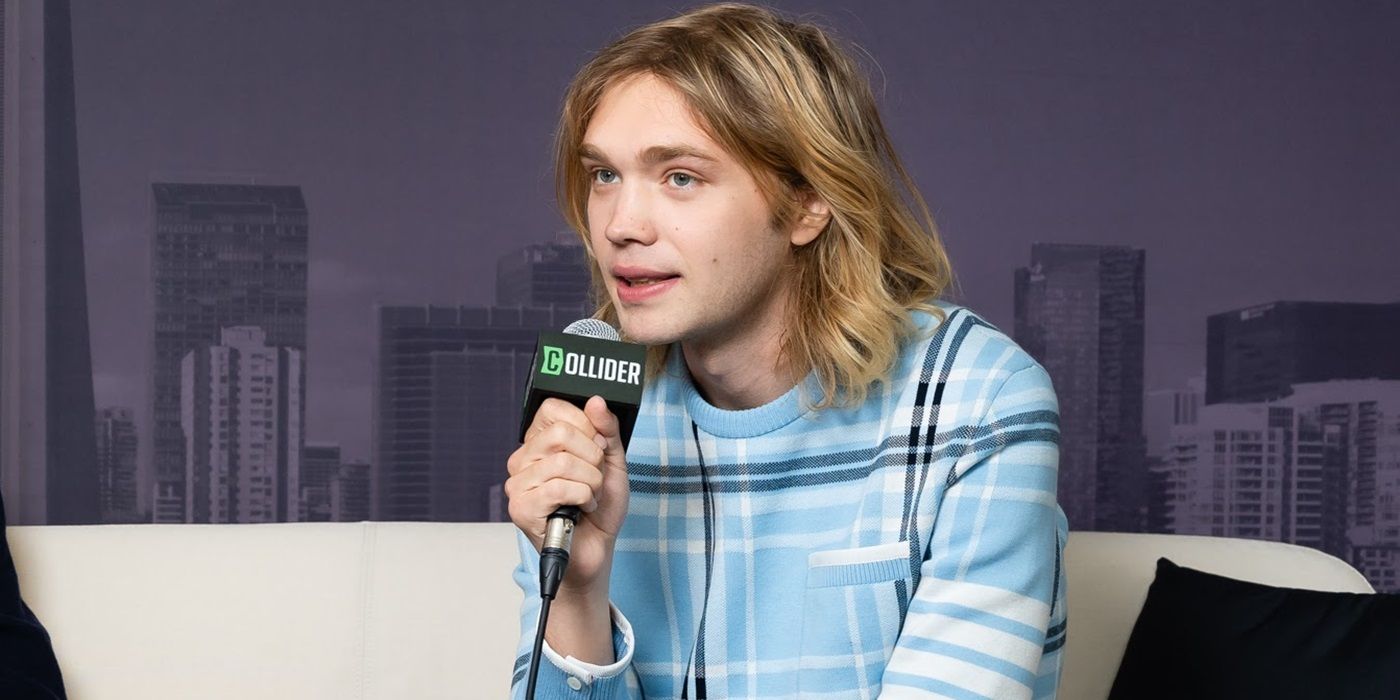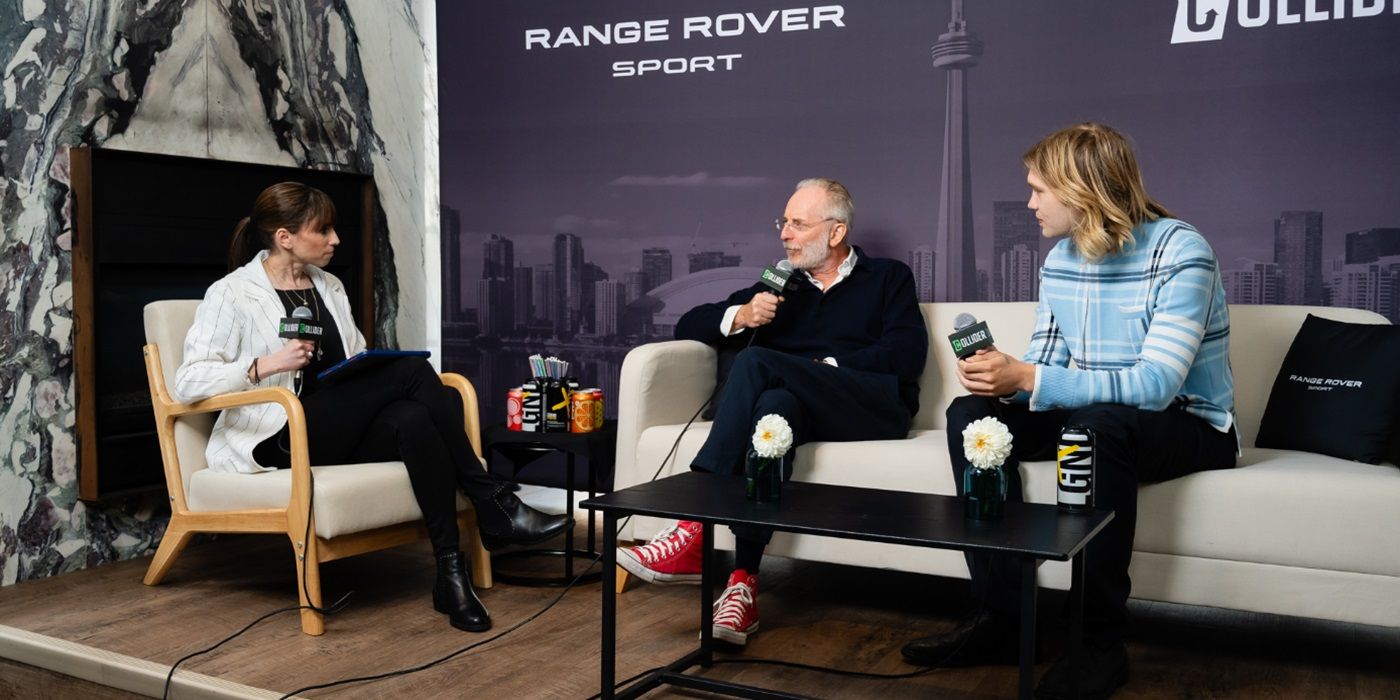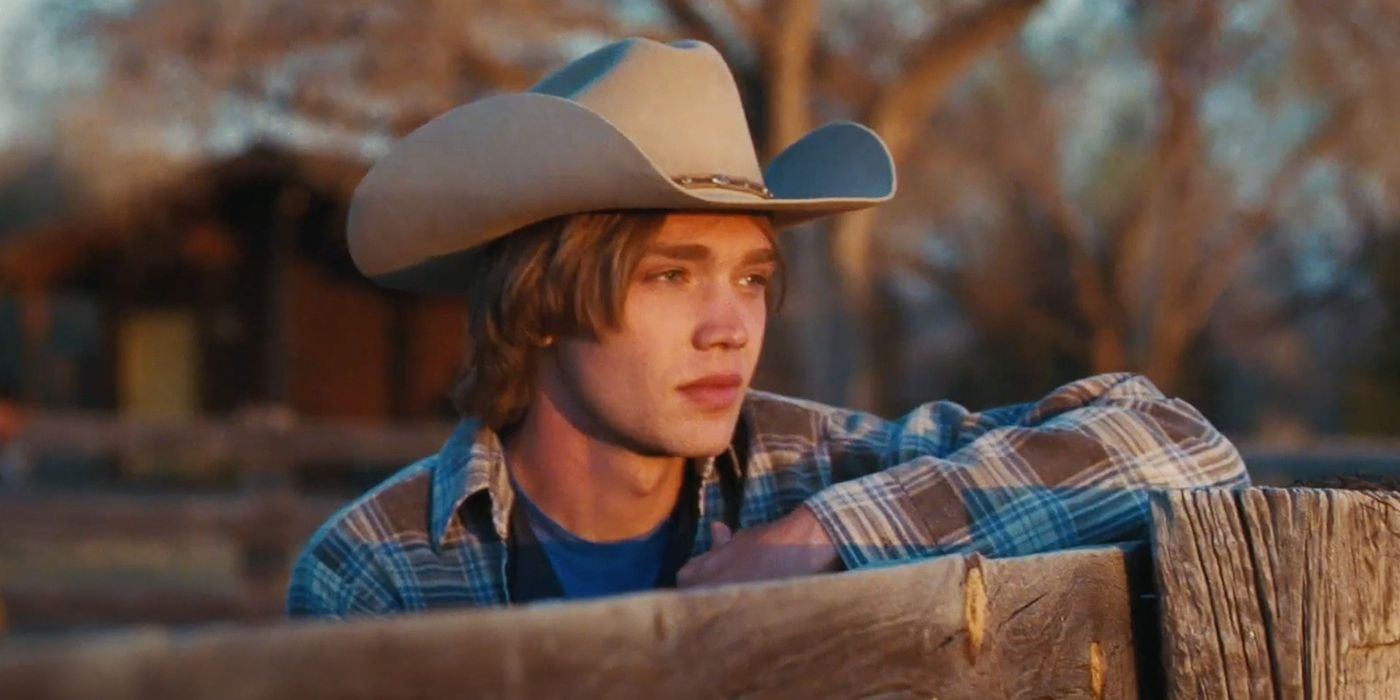The Big Picture
- Collider’s Perri Nemiroff talks with The Return director Uberto Pasolini and Charlie Plummer at TIFF 2024.
-
The Return
is a contemporary adaptation of Homer’s “Odyssey” that explores the effects of war, also starring Ralph Fiennes and Juliette Binoche. - During this interview, Pasolini and Plummer discuss the challenges of adapting the source material, the emotional depth from the ensemble cast, facing your fears, and more.
“For there is nothing better in this world than that man and wife should be of one mind in a house.” Homer’s ancient Greek epic, “Odyssey,” makes its way to the silver screen in The Return.
Fresh off the Toronto International Film Festival 2024, where it world premiered, the ambitious film follows Odysseus (Ralph Fiennes) as he finds himself all washed up on the shores of Ithaca. Having left the kingdom 20 years ago for the Trojan War, his wife and queen, Penelope (Juliette Binoche), has long awaited his return home. A story of a former warrior once revered by the people, Odysseus finally begins his path home, only to be put to a test by his wife to see if he is the mightiest out of all the men who have come to steal his throne.
A story that has lasted through generations, The Return stays true to its classical roots and brings a grounded adaptation that captures the raw grittiness and vulnerability of the Greek epic. Collider’s own Perri Nemiroff had the opportunity to discuss the film with director Uberto Pasolini and cast member Charlie Plummer, who plays Odysseus’ son Telemachus, at the Collider interview studio at the Cinema Center at MARBL. The duo discusses how their fear of such intimidating source material drove performances and execution on set and how both Fiennes and Binoche offered both director and co-star something invaluable throughout production.
You can watch the full conversation in the video above or read the transcript below.
‘The Return’s Director Had to “Put the Fear Away and Jump Into It”
“The idea of tackling Homer is silly.”
PERRI NEMIROFF: Huge congratulations on your film. Mighty ambitious production in many respects.
UBERTO PASOLINI: Yes, very ambitious. The idea of tackling Homer is silly. It was a risky thing to start with, but fortunately, he speaks so much to humanity at any point in its history, and today in particular, that one had to put away the fear of the journey and just jump into it, and we did it.
Having done it and done it well, for any other filmmaker who might be inspired by you and want to adapt the material themselves, what is one “do” and one “do not” you would give someone for adapting Homer?
PASOLINI: Read it. Really read it, really dig into it. That’s what you should do. What you shouldn’t do — I don’t think there are rules about not doing things. I think filmmaking has to be completely without rules. Everyone has their own take. The material of Homer is so rich, so insightful, and so powerful that it could feed hundreds of films. What is, in fact, extraordinary is that it hasn’t. In particular with the Odyssey, no one has done a film of the Odyssey as written by Homer for 70 years. Kirk Douglas was the last Ulysses/Odysseus on the big screen.
I heard you mention that last night in the intro, I believe, and it shocked me.
PASOLINI: It is extraordinary. I think it’s maybe what we were talking about before, which is, it’s a scary challenge to even think about approaching Homer. You’re going to lose by comparison by definition. So what you have to do is make sure that you actually have something to say, or at least that the material, the poem, has spoken to you in a way that you have a take, a point of view, a way of reading it that is your own — our own in this case. Otherwise, it’s not worth it.
‘The Return’ Focuses on One Particular Area of Homer’s “Odyssey”
I’ve kind of jumped ahead here. Clearly, I know what The Return is, but our viewers might not know just yet because it is a film festival premiere. Can you give a brief synopsis of how you tackle the story?
PASOLINI: Well, the Odyssey is the second great epic poem that Homer wrote. It deals mainly with the return home from the war in Troy of Odysseus. We focused on one particular area of the poem, which is the actual physical return home. We don’t deal with the journeys, which are in part magical, as recounted by Odysseus himself. In part of the poem, we don’t specifically deal with the dilemma of searching for news of his father on the mainland of Greece, which opens the poem. We specifically deal with the reuniting of a family — the reconnecting between Odysseus, his wife Penelope, the queen of Ithaca, and their son Telemachus, who has never really met his father because the father left for war when Telemachus was an infant. So that’s what we focused on.
If I may continue, what we are particularly interested in is reflecting on the nature of war and what it does to people. Our Odysseus is a man traumatized by what he has done and seen in the war, a man who carries the guilt of violence and the guilt of not returning home sooner, which he theoretically could have done. At the same time, we witness the relationship between the mother and the son and the difficulty of that relationship as it’s under the cloud of the absence of the king, the rule-maker on the island. It’s psychologically enormously difficult for a young man to grow up without a father figure, without the identity, or worse, still, with the identity of a father figure who is famous for being a hero but completely not present in his own life. That’s really what we focus on. We focus on individuals, we focus on the effect of war on individuals, and that is what makes it completely contemporary or a-temporal; it’s universal and timeless.
Ralph Fiennes Shares Invaluable Advice With Charlie Plummer
“It was like a lightning strike in the best way.”
Charlie, there is a significant amount on your shoulders with this production between the source material, working opposite legends, and the scale of the production. I’m curious, when you first started working on it, do you remember a specific point where you kind of felt grounded and like you had confidence in yourself to thrive in this high-pressure type of environment?
CHARLIE PLUMMER: [Laughs] Yes, I was quite honestly really struggling with that in the beginning. And Uberto, being the compassionate and kind director that he is, was giving me a tremendous amount of space and confidence, and trying to inject that into me. But it was something that I really needed to feel in myself and my body; I needed to connect with it. We were doing this one scene in particular with Ralph [Fiennes], and it was actually on my birthday in real life. Ralph gave me a piece of advice during the scene that, quite honestly, how I describe it to people, was like a chiropractor cracking your back. It was like he just cracked my back, and then all of a sudden, I felt it in my body. Then, going to set, I felt like, “Okay, I am the prince and this is my set, and these are my people.” It just took over in that way.
Ralph is such a respectful actor, he’s so in control of himself and in tune with himself; he would never go up, and I knew he never would. I knew he could see me in that moment yearning for that, and he just knew what I needed before I did and gave it. I remember profusely thanking him after and recognizing that, to him, this was probably just any other moment. But, of course, to me, it made a huge, huge, huge difference. That’s a feeling I’ve taken with me and I’m taking with me wherever I go now.
I love that memory. I’ll respect the fact if you want to keep this private, but what was that particular piece of advice he gave you in that moment?
PLUMMER: I think the specifics of the words I’ll keep to myself. But I do think the message to me — something not in the words but actually in how he was communicating it — was that he kept gesturing to his stomach, to his gut, and said, “This is what we’re looking for. Your connection to this is what we’re looking for here.” So I think that really, to me, was something in the cerebral aspect of it, but really in the physical and the connecting of the two. It really did something for me. Yeah, it was like a lightning strike in the best way.
It’s a beautiful memory. I appreciate you sharing that. Uberto, I wanted to come your way in terms of working with this exceptional ensemble here because I feel like more often than not, I hear people use the phrase, “What did the director bring out of the actor?” And I do think that is applicable, but I like asking about it in the reverse. Can you tell me something about your ensemble here that brought something new out of you as a director?
PASOLINI: It’s very easy to answer that one. In spite of how much the material and the writing of the script was an emotional experience for me, by the time I got to the set, I was mainly working on an intellectual level. Charlie, Ralph, and Juliette [Binoche] reminded me that what was most important was the emotional truth of the circumstances of the events of the scenes we were playing. They gave me emotional readings, emotional moments beyond the ones I was initially looking for. I was actually laughing with Juliette the other day, saying how often in the editing room I ended up choosing a take, which was her interpretation, her emotional interpretation of a moment rather than my initial intellectual interpretation of a moment.
Given the talent I was working with, the gift they gave me is their own truth, and what Charlie was just saying now — the fact that their stomachs were into their performances, and they became people rather than characters. Rather than the intellectual idea of a character, they became real people in front of the camera. That is why I think the film does connect with an audience, because it’s not about the recreation of a myth of people who are distant from us, who are just figures in a literary world with no connection to us. They managed to make them real people for an audience today so that their battles and their emotional struggles are completely connected to an audience today. I think that’s what they have done, and I would not have been able to do it without them.
That’s such a vital quality here.
Odysseus and Penelope’s Reunion is the Heart of ‘The Return’
Something you just said sparked this question in my mind. I love hearing about how things can evolve on the spot. Again, it’s an ambitious production. I’m sure you have to plan, plan, plan to make sure everything actually happens, but I find that you can discover some of the best movie magic when things veer off schedule or off plan. So, can you give me an example of a time on set when you had to pivot from what you originally wanted but found something better in the process?
PASOLINI: I have to think about that one for a bit.
PLUMMER: I’ll just say, because it’s not really for me to say what moments worked, I can say what meant a lot to me in the experience of doing it. A moment I had with Juliette towards the end, I realized shooting with her, she wouldn’t wait for action or cut or anything. She would just kind of look at me and take me in as people were setting up for the shot. It was as though we were communicating with one another just purely looking at each other, looking into each other, having this conversation, and everything kind of coming together up until action. It was like we had been there the whole time. There is something about that to me, and her bringing me into that, that I am so deeply grateful for. It is that unknown and trying to explore oneself. Of course, if you have someone like that, with a person like that, it’s such a gift and is the unexpected with the experience that you hope for. But it’s hard to pick out one moment as much as it really was just the all-encompassing essence of the experience.
Great example there.
PASOLINI: I think there is a pivotal scene in the film — I don’t know if you agree with me — which is the first encounter between Odysseus and Penelope, between the husband and wife. They’ve been away from each other for 20 years. She’s been longing for his return, she’s been suffering his absence, and he’s been fearful of returning because of his guilt, because of his profound hatred towards himself for what he has become — a man of violence, a man of war, a man of pain. As we were filming that scene, the actors found moments which were not written in the script, which were not verbal moments but were a way for the two characters to look at each other anew and to find the language of two people who recognize, and at the same time, do not want to be recognized by each other. That was certainly edited into the scene, and I think it makes that scene one of the best scenes in the film, at least to me.
I can second that. Watching from my perspective, at least. Watching two acting legends navigate that particular part of the material, it overjoyed me as a fan of theirs.
Charlie Plummer Is Looking to Challenge Himself With Each Role
Charlie, I wanted to make sure to ask you this question because I brought it up briefly before we even started rolling. I think it’s the coolest thing ever that you’re sitting on this couch for The Return, and the last time you were here, you were sitting here for National Anthem. They’re such drastically different films, and I think that’s true of your entire filmography. Is there any particular consistent thing you look for in new projects that you take on, whether it’s the material itself or the people you work with, that keeps you going the right way but also lets you have variety in your work?
PLUMMER: Thank you so much. That’s a huge compliment, first of all. I think it’s a little bit of both. I think, of course, the people are what your life is for that time, and it’s the experience, and that’s how I remember it and that’s how it lives for me. So, of course, that is so much of it. But with the material and with the character, I think for me personally, the character and feeling something, really believing in myself. Something that I think the last couple of things I’ve really felt — National Anthem and this very much being that — was when Uberto asked me to do this, I genuinely believed in my stomach that I couldn’t do it. I do think there’s something about growing with that feeling and going from a place of, like, riding the bike with training wheels and taking them off and going, “I can’t ride a bike,” and then all of a sudden, it’s happening, and you’re doing it. So I think that’s the feeling I try to find every time again, if I can, if I’m lucky enough to get that.
Keep using that compass.
PASOLINI: I certainly share that idea — “I can’t do this.” You go into a project like this, when you go into tackling Homer or trying to share Homer with an audience today, and you say, “This is impossible. This is beyond me.” And, in fact, I think it’s the fear that feeds you into the work and helps you with the work. If you didn’t have that fear, if you thought you just could do it, you wouldn’t be able to dig deep and find something worthwhile.
If there’s no fear, what’s the point? If there’s no ambition in your work, it’s not gonna strike a chord in a fresh way for a viewer. The fact that you both pull this off here with your entire team is mighty impressive.
Special thanks to this year’s partners of the Cinema Center x Collider Studio at TIFF 2024 including presenting Sponsor Range Rover Sport as well as supporting sponsors Peoples Group financial services, poppi soda, Don Julio Tequila, Legend Water and our venue host partner Marbl Toronto. And also Roxstar Entertainment, our event producing partner and Photagonist Canada for the photo and video services.
Source link
